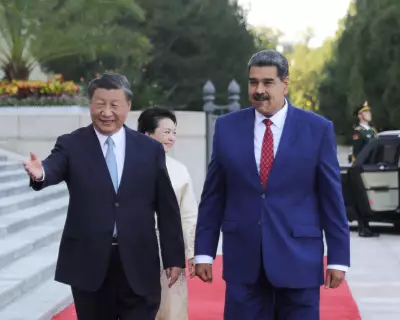
Prime Minister Anthony Albanese is positioning a dramatic expansion of quality childcare services as a cornerstone of his political legacy, pledging to advance the ambitious plans during his current term in office.
New Legislation to Enable Data Collection
The Australian government is quietly progressing towards universal childcare through new legislative measures that would compel private operators to hand over sensitive commercial information. Education Minister Jason Clare has introduced provisions in legislation originally designed to improve higher education services that will grant the Department of Education powers to require private childcare companies to provide data about costs and service pricing.
Clare told parliament these new powers would ensure the information provided to government is "accurate, comprehensive and representative" and would help deliver "evidence-based reforms." The legislation includes proper authorisation protocols for handling protected information during research, statistical analysis and policy development.
Multi-Million Dollar Research Project Underway
The government has already commissioned consulting giant Deloitte to lead a comprehensive two-year research initiative known as the Early Education Service Delivery Prices Project. This $10.4 million research endeavour will examine sector wages, property costs, and the experiences of families and operators across Australia's early childhood education system.
Guardian Australia revealed in August that Deloitte was leading this project, with a final report due before the next federal election. This timing could allow Albanese to use the universal childcare plan as a central platform for Labor's re-election campaign.
The research findings are expected to inform "further decisions about the pathway" toward universal childcare, with Albanese confirming earlier this month that plans would progress from next year.
Significant Financial Implications
The financial scale of implementing universal childcare remains substantial. According to the Productivity Commission, removing the existing childcare subsidy and introducing a flat-fee model of $10 per day would cost approximately $8.3 billion annually.
As an alternative, the Commission recommended providing three days per week of free childcare for 48 weeks annually to single-child families earning under $80,000 and families with more children earning up to $140,000. This modified approach would cost $4.7 billion if the existing subsidy was also limited to families with combined incomes below $580,000.
Current childcare subsidies represent a significant budget commitment, costing $16.2 billion this financial year and projected to rise to $18.4 billion by 2028-29. With growth of 5.5%, this represents one of the budget measures expanding faster than nominal GDP.
Economic Benefits Versus Costs
The Centre for Policy Development has presented modelling to a Senate inquiry suggesting that a new funding model guaranteeing three days of free or low-cost childcare weekly would cost state and federal governments between $7.2 billion and $11.5 billion more per year.
However, the thinktank's analysis indicates substantial economic benefits, finding that a universal system "would generate up to $44 billion a year in extra tax revenue, additional GDP growth and associated savings from reduced spending on crime, child protection, welfare and healthcare."
Parliamentary Budget Office costings for more extensive provision of 50 hours of universal care weekly, with funding directed to providers, forecast expenditure of $36 billion over the forward estimates period – equivalent to approximately $126 billion over a decade.
The government faces political challenges in implementing these reforms, with the Coalition signalling it will fight Labor's universal childcare plan and pursue what Deputy Liberal Leader Sussan Ley described as an "unrelenting" focus on efficiency in government spending.





